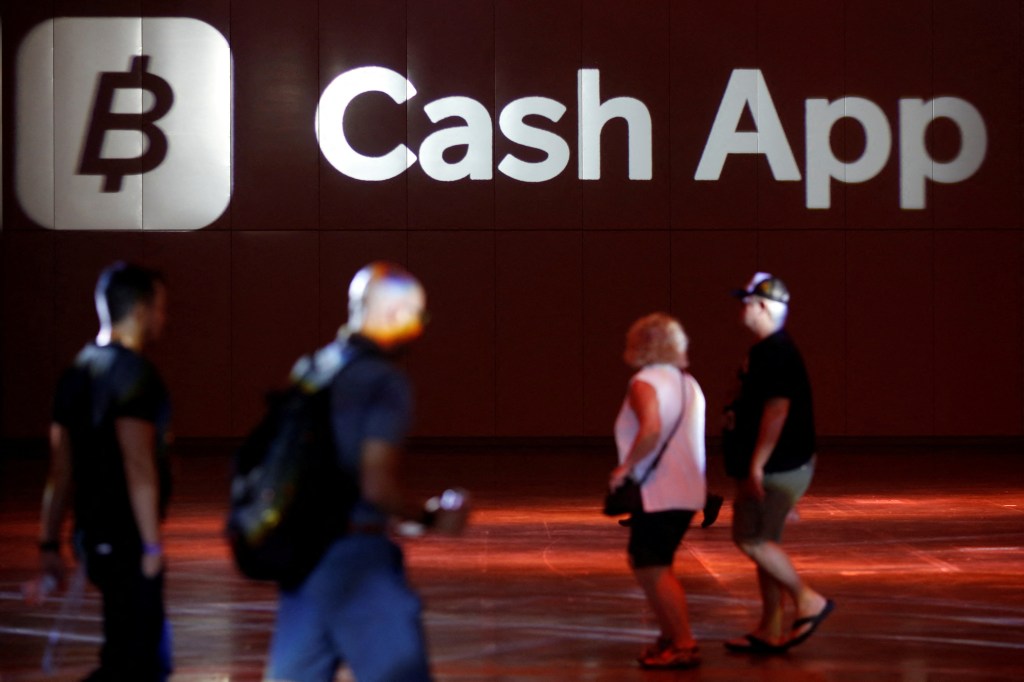Short seller Hindenburg accuses Jack Dorsey’s Block of ‘facilitating fraud’
Hindenburg Research — the short seller which exposed alleged shady accounting practices by Indian billionaire Gautam Adani — accused Jack Dorsey’s mobile payment firm Block of “facilitating fraud” by turning a blind eye to customers who took advantage of pandemic-era relief payments.
In a damning report Thursday, Hindenburg took to Twitter — the social media platform co-founded by Dorsey — to accuse Block of failing to crack down on illegal activities by customers of its Cash App payments facilitator.
The research firm, run by Nathan Anderson, found that Cash App clients allegedly exploited government stimulus payments during COVID lockdowns to line their pockets, according to Hindenburg’s two-year investigation of Block.
“Block ignored both internal and external warnings that multiple individuals using the same bank account number to receive government funds was a brazen red flag of fraud,” Hindenburg wrote.
“Multiple key lapses in Cash App’s compliance processes facilitated billions in government payment fraud.”
Block denied the allegations, calling them “inaccurate and misleading, and threatened legal action against Hindenburg.
The blockbuster accusation sent shares of Block plunging by some 20% after the opening bell before it pared losses to about 13% by the afternoon.
Hindenburg also claimed that Block “obfuscates” the number of customers registered on its Cash App platform by reporting misleading “transacting active” metrics filled with fake and duplicate accounts.
The firm said that Block co-founders Dorsey and James McKelvey collectively sold over $1 billion of stock during the pandemic as the company’s share price soared. Dorsey quit as Twitter CEO in 2021 and left the board last May before the site was bought by Elon Musk last October.
Other Block executives including finance chief Amrita Ahuja and the lead manager for Cash App Brian Grassadonia also dumped millions of dollars in stock, the report added.
“Our 2-year investigation has concluded that Block has systematically taken advantage of the demographics it claims to be helping,” the short seller said in a note published on its website.
Hindenburg said it was told by authorities in Massachusetts that the state was looking to claw back more than 69,000 unemployment payments sent to Cash App accounts.
Other states were also going after Cash App in an effort to retrieve allegedly ill-gotten gains.
“Washington State wanted more than $200 million back from payment processors while Arizona sought to recover $500 million,” according to the report by Hindenburg.
Block fired back by saying it intends to work with the Securities and Exchange Commission “and explore legal action against Hindenburg Research for the factually inaccurate and misleading report they shared about our Cash App business today.”
“We have reviewed the full report in the context of our own data and believe it’s designed to deceive and confuse investors,” the statement went on to say. “We are a highly regulated public company with regular disclosures, and are confident in our products, reporting, compliance programs and controls.”
The short seller’s report also accused Block of flouting the law by charging up to 35% in interchange fees — well above the cap set by regulators.
Hindenburg said it was the same method used by Cash App rival PayPal over its debit card interchange rates, which are the feeds that merchants pay banks every time a customer swipes a debit card.
In July 2021, the SEC launched an investigation of PayPal for allegedly circumventing the cap on interchange fees by routing the payments through smaller bank.
“A Freedom of Information Act (FOIA) request we filed with the SEC indicates that Block may be part of a similar investigation,” Hindenburg wrote.
Before releasing its findings on Thursday morning, Hindenburg teased that it would be issuing a “new report soon — another big one.”
Block released a statement on Thursday saying: “We intend to work with the SEC and explore legal action against Hindenburg Research for the factually inaccurate and misleading report they shared about our Cash App business today.”
“Hindenburg is known for these types of attacks, which are designed solely to allow short sellers to profit from a declined stock price,” the company said.
“We have reviewed the full report in the context of our own data and believe it’s designed to deceive and confuse investors.”
“We are a highly regulated public company with regular disclosures, and are confident in our products, reporting, compliance programs, and controls,” the company said.
“We will not be distracted by typical short seller tactics.”
About 5.2% of Block’s free float shares were in short position as of March 22, according to Ortex data.
The company’s ticker was third most trending on retail investor focused forum StockTwits.
Last month, Block said it is “meaningfully slowing” the pace of hiring this year to control costs.
In late January, Hindenburg published a report alleging that Adani’s port-operating conglomerate engaged in stock manipulation and fraudulent accounting practices to artificially inflate the value of his company.
At the height of his wealth, Adani was worth more than $150 billion last year — exceeding that of Amazon founder Jeff Bezos.
Earlier this month, Adani’s net worth dipped to less than $38 billion.
He has since been seeking to win back investor confidence after the Hindenburg report triggered a massive selloff in company stock.
Founded in 2017 by Anderson, Hindenburg is a forensic financial research firm that analyses equity, credit and derivatives.
Hindenburg invests its own capital and takes short-positions against companies. After finding potential wrongdoings, the company usually publishes a report explaining the case and bets against the target company, hoping to make a profit.
With Post Wires















